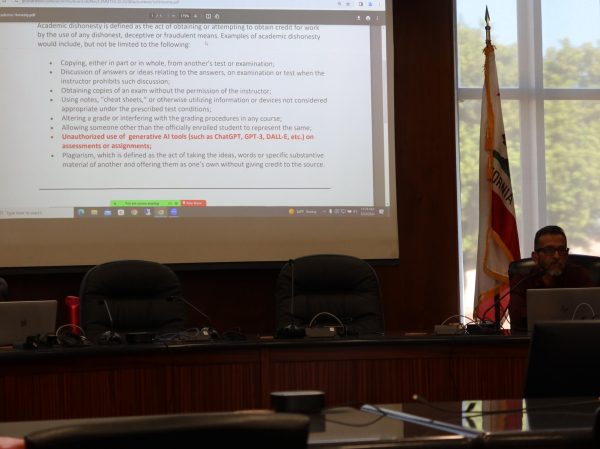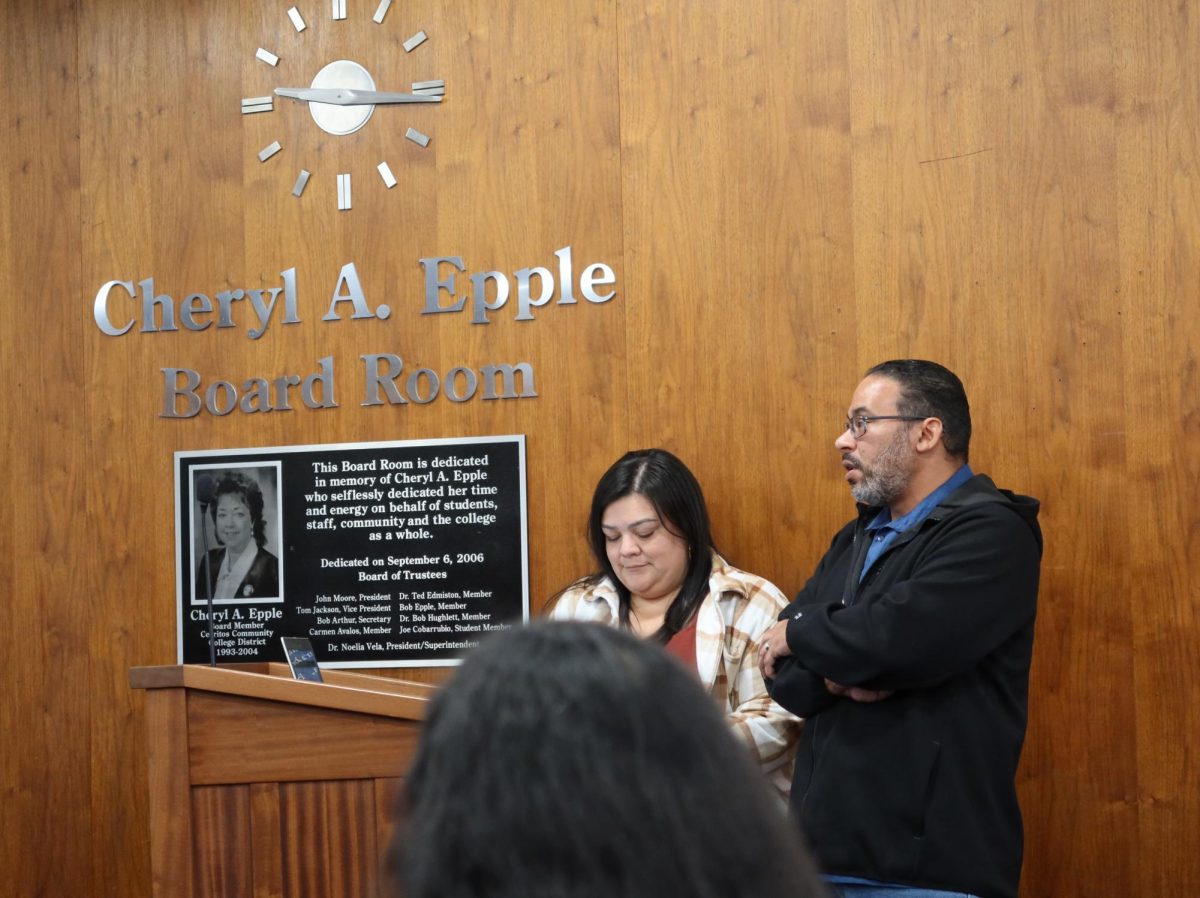Senate faculty members Lantz Teresa, Jannet Mitchell Lambert, and Terrence Mullins spearheaded a discussion on the use of AI and the possibility of perhaps integrating it into certain classrooms, during a faculty senate meeting on Tuesday, Jan. 23.
Since the release of OpenAI’s ChatGPT, many schools have struggled to prevent and mitigate the use of AI among students who’ve used it to commit plagiarism on their assignments.
AI however doesn’t seem to be going away, instead it seems to keep on growing and getting smarter. Some are even concerned with the possibility of it never really going away and becoming a commonly used thing by everyone.
“It’s out of control and getting worse and it’s still evolving,” said Terrance, “There are a lot of departments, a lot of faculty that want to use it in a very constructive way and there’s also a lot of faculty that want it prohibited.”
Terrance explained how this could lead to several conflicting issues e.g., a faculty member may want to implement it into their class but there’s a department wanting to prohibit it, or vice versa.
A department may want for it to be used but now there’s pressure from several faculty members advocating against the use of AI.

The resolution seeks to resolve issues like this by allowing each individual faculty member to essentially decide if they want to allow AI to be used, to a certain extent, in their classrooms.
There are however still some issues for faculty members that wish to prohibit the use of AI. Terrance shared an experience with one of his students who was caught using AI and despite having a policy against it in the syllabus, some students may go into “lawyer mode” as he puts it.
The students may try arguing that certain things weren’t exactly specified however most faculty present agreed that simply using AI was plagiarism.
The resolution seeks to prevent issues like this with a new policy in which if an instructor unauthorizes the use of AI tools then the student can’t use AI at all.
Several faculty members shared their concerns over the different uses of AI e.g., if they were to use it to create an outline or certain structure for an essay, so instead of copying the words of the essay they just use the framework of it.
Something like that would still be considered plagiarism, despite some seeing this only as learning the structure of an essay. There is also an unethical aspect that would pertain to students as well, as this would be like a crutch for students if they’re meant to learn how to make their own framework.
Unless authorized and acknowledged as having been derived from an AI tool, it wouldn’t necessarily be considered plagiarism, which would now depend on each faculty member as the motion was passed with a majority of the votes.
Faculty will be sent the Senate resolution on the Use of Artificial Intelligence Tools & Academic Honesty.
A student representative also shared his thoughts on the matter, “AI is not something that’s going to go away… it’s only going to learn and get more advanced,” said Jacob Poliquin Hernandez.
“We could try to mitigate it at a faculty or classroom level but it’s never going to go away, it’s like that Pandora’s box that’s been opened,” said Poliquin Hernandez.
















